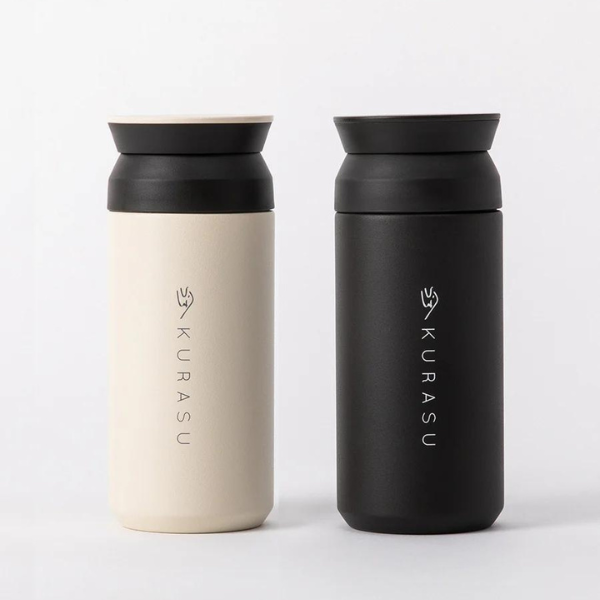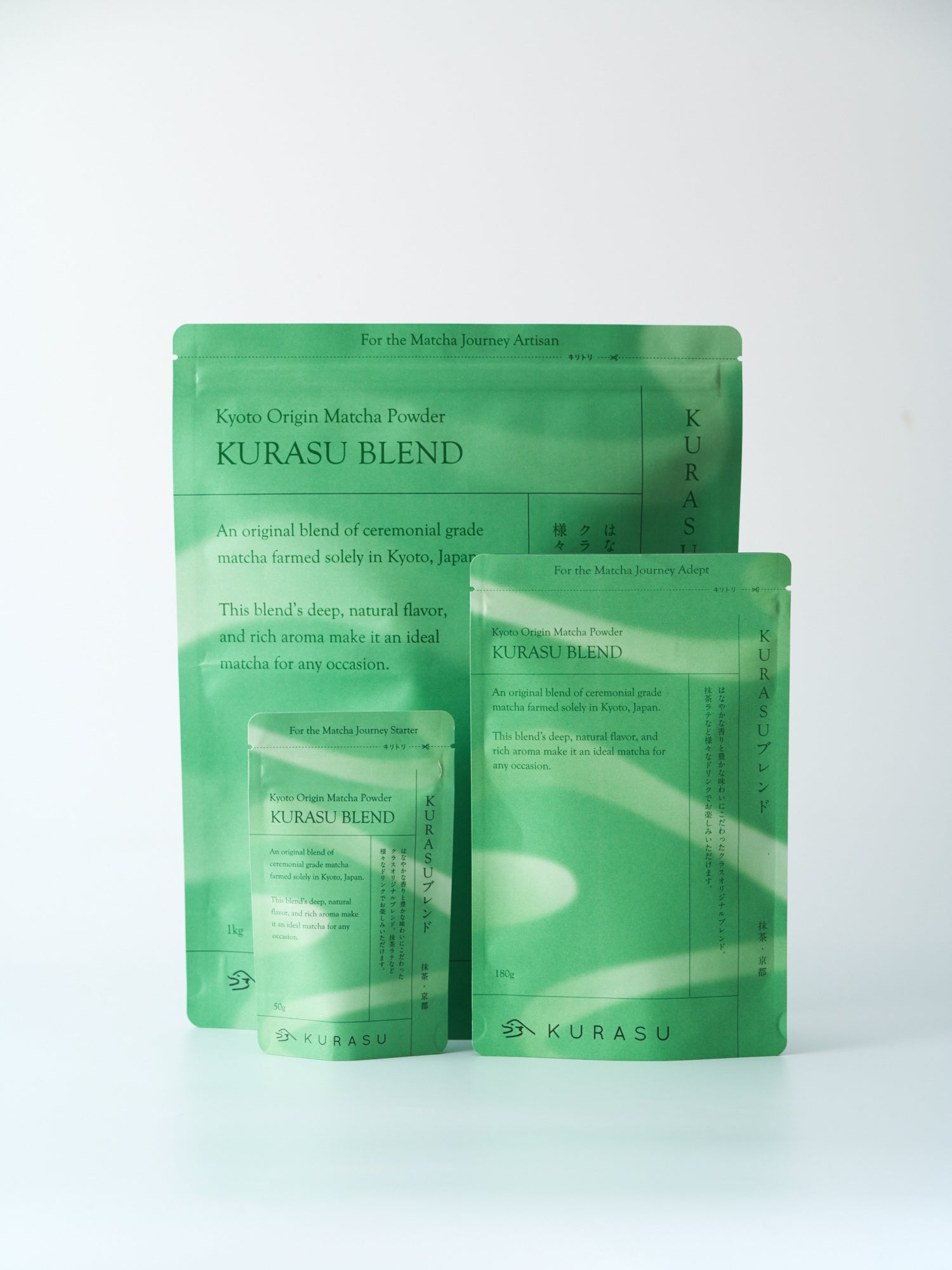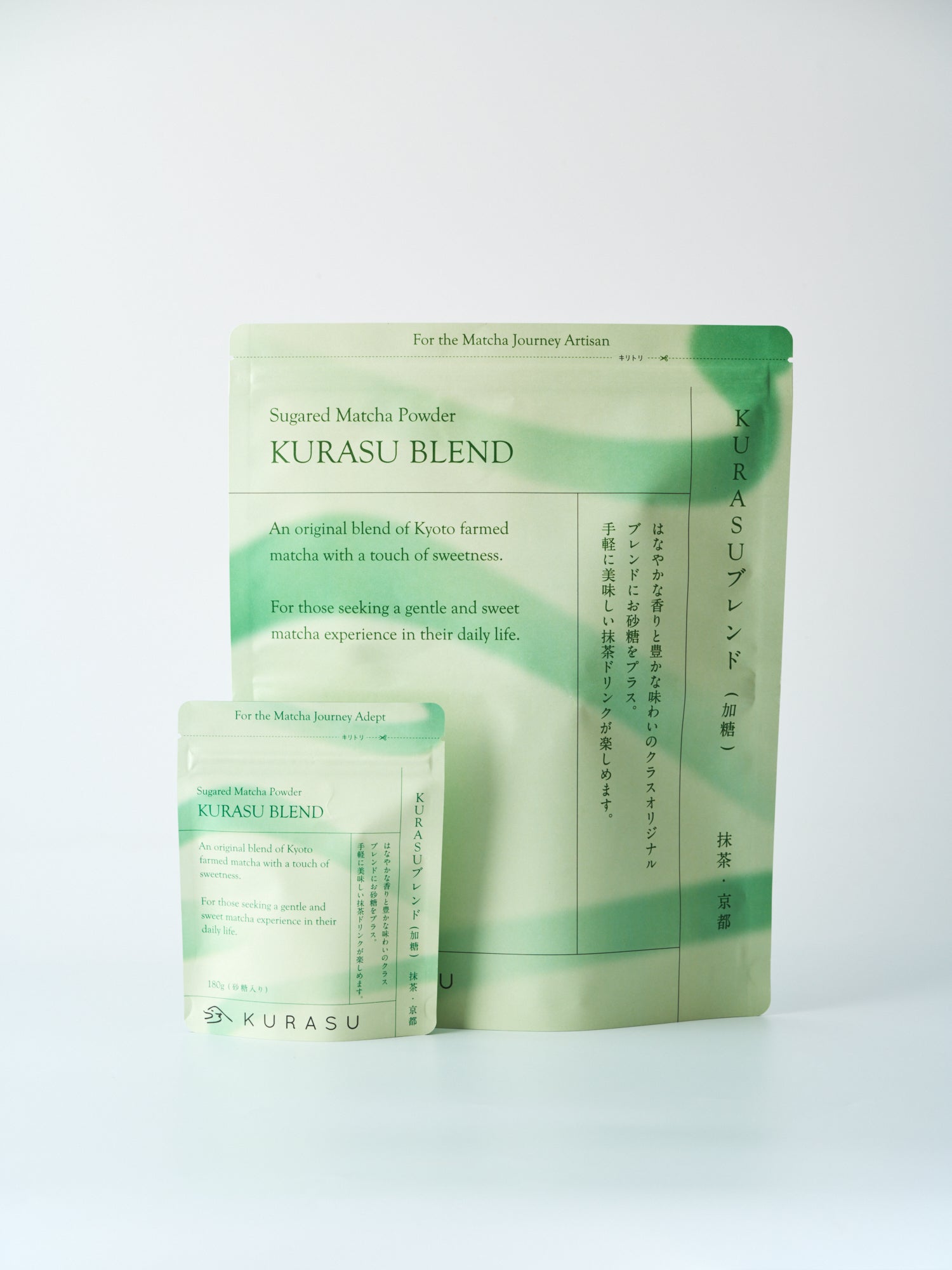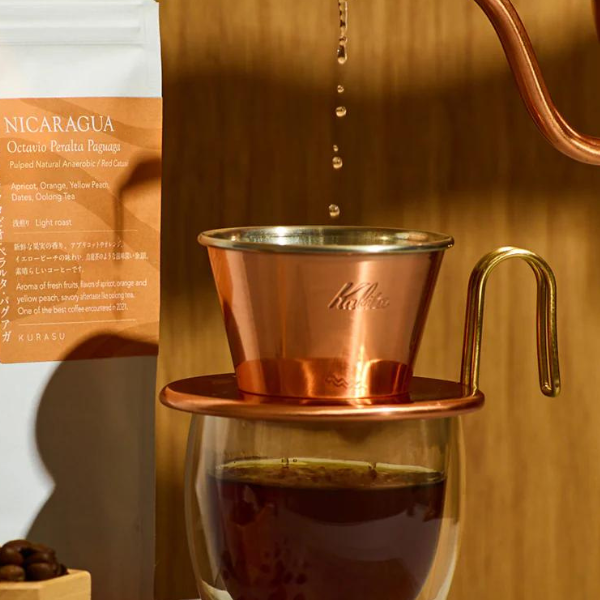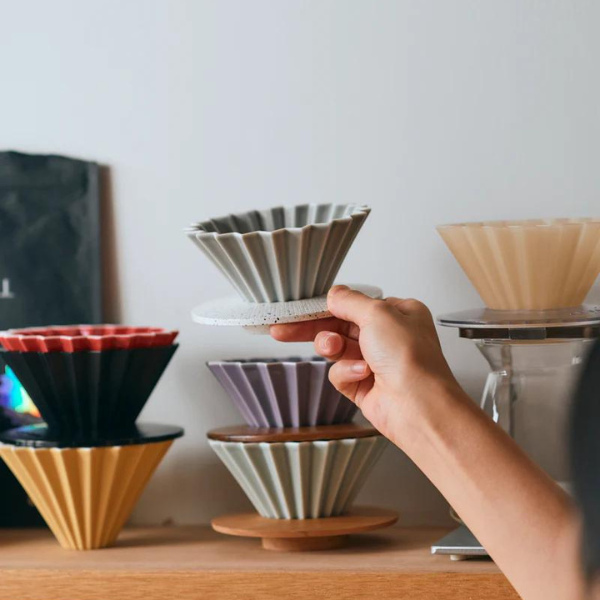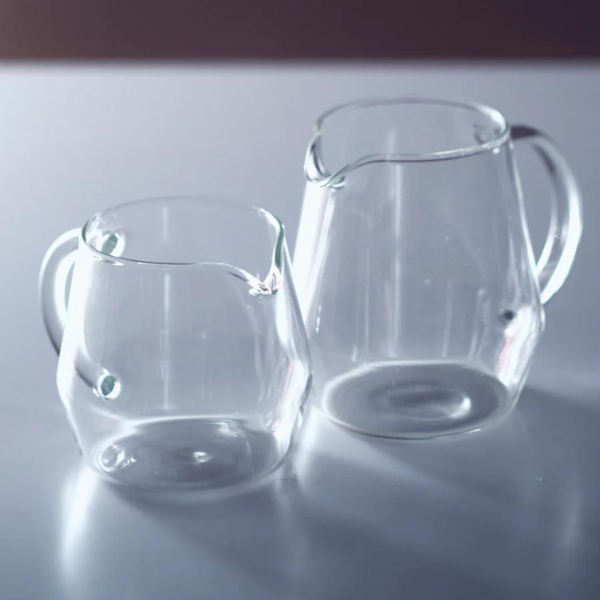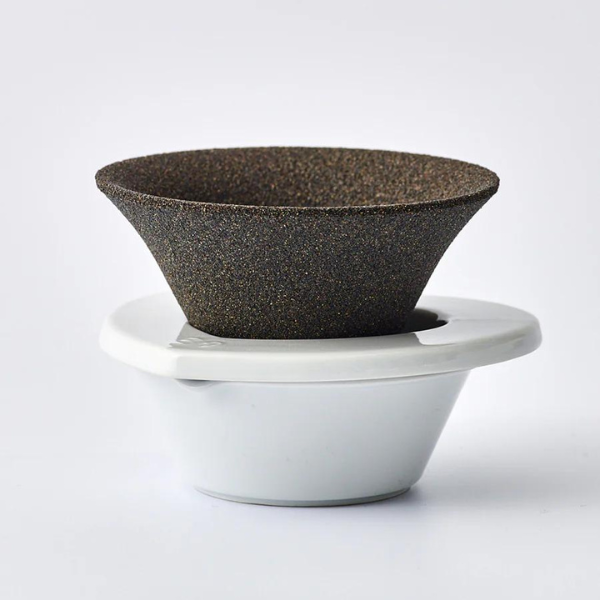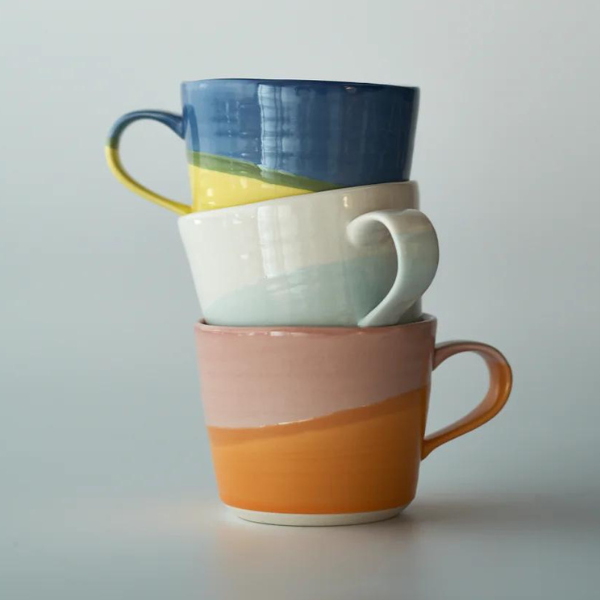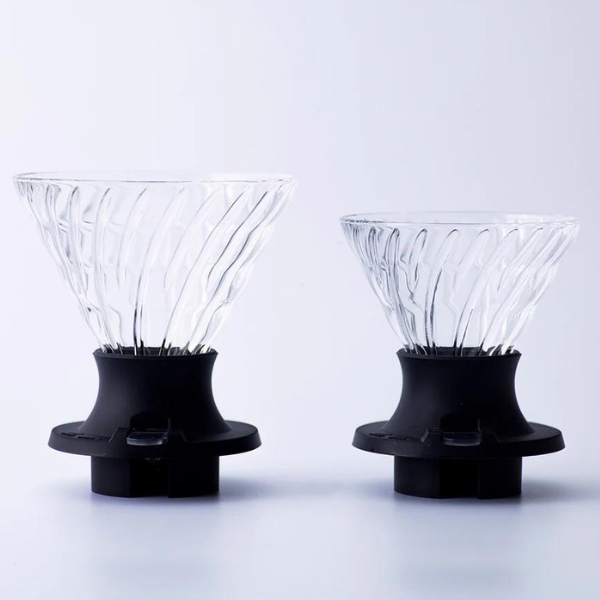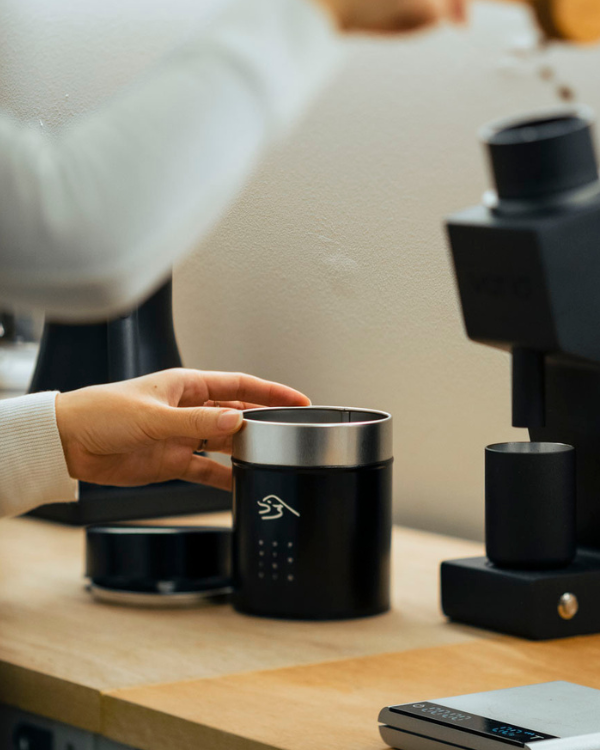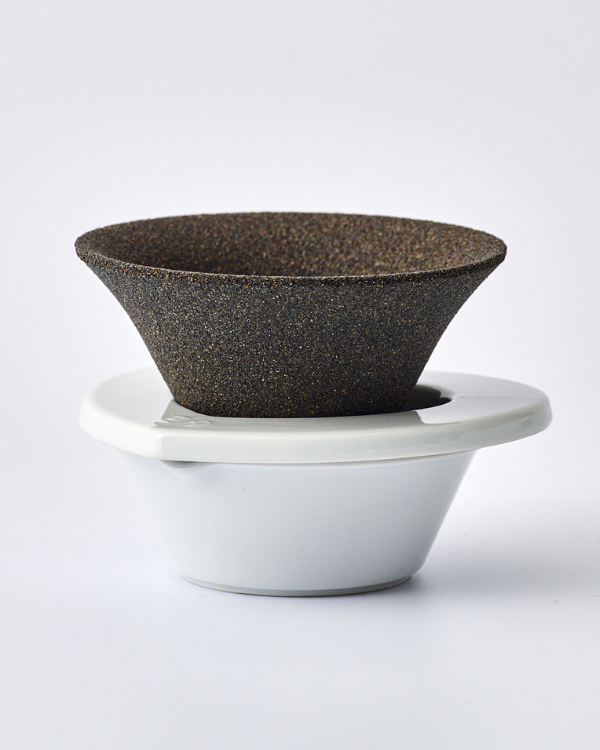The next #kurasucoffee subscription roaster Kurasu introduces is COFFEE COUNTY in Kurume, Fukuoka. The owner/roaster, Mori-san told us how COFFEE COUNTY has started, about his roasting, and about his vision in the future.
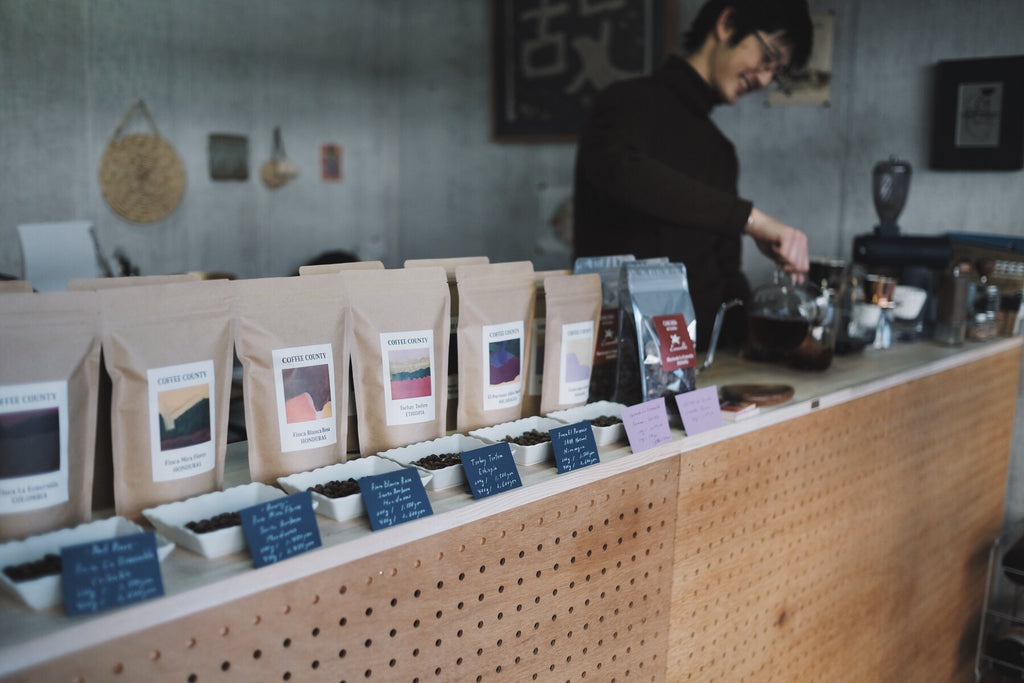
-How has COFFEE COUNTY started?
I was working for a company which runs cafes such as Townsquare Coffee Roasters. I gained experience using a big roasting machine and I also worked at a coffee supply shop selling beans and equipment. It was during this time that I developed my interest in coffee farms, and decided to travel to visit various farms. I spent 3 months travelling around central America including Nicaragua, as well as Nice in France as I was invited by SCAE as a coach.
When I returned to Japan, I considered working for a company again, but as that would give me less freedom to travel around again, I strongly felt that I should start my own business making the most of my experience and what I had learned during my travels.
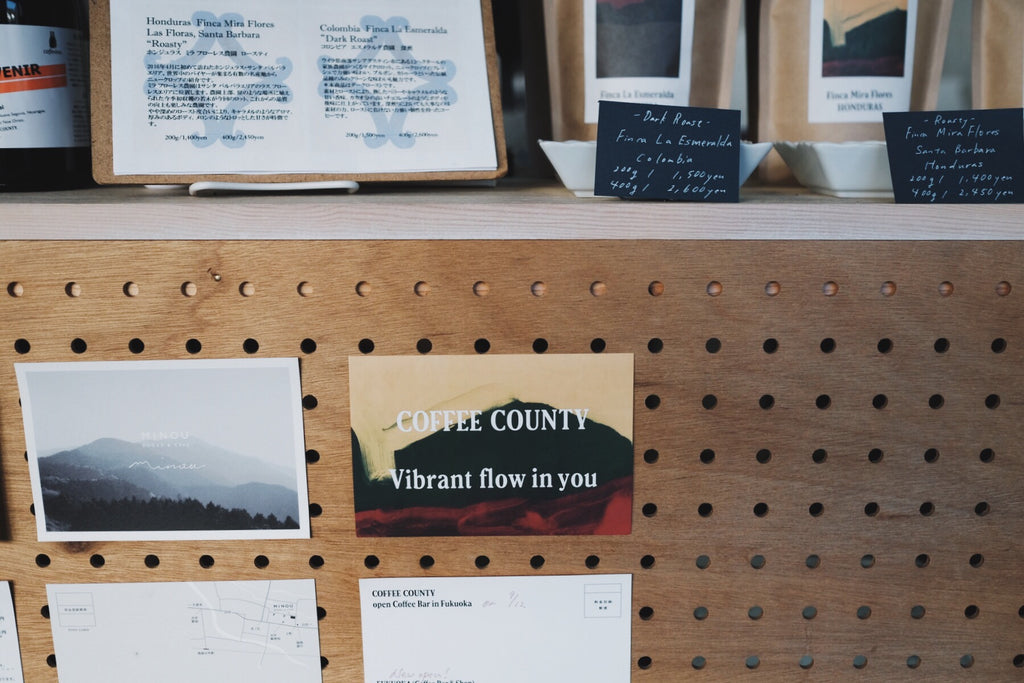
-So your experience at the farm and the charm you have found inspired you to make a change in your career path. How has it shaped COFFEE COUNTY?
People usually go to farms only during harvesting season or when the plants are bearing fruits, as well as for cupping and purchasing beans--but I visited the farm during a regular part of the season. After joining COE at Guatemala in May, I traveled to Nicaragua in mid-May. They had finished harvesting and there was nothing particularly exciting going on. However, that was the best season to learn from the farmers and workers who are usually working hard to make all the beautiful red berries.
At the farm, there are nearly two hundred thousand coffee plants all growing in an altitude range of up to 400 metres. The farmers carry 20kg bag of fertilizer on their shoulder and take care of each plant individually. During that season, they also cut the tall grass and remove any trees that have grown dense and are blocking the sunlight, while planting new plants. These are the hardest jobs and they often don't get recognized, but are among the most important. I learned Spanish so I could help them while lodging at the farm.

A couple of months after I returned back to Japan, I opened this roaster. We chose Kurume to make it easier for my wife to commute to her office. Compared to Chikugo where we used to live, Kurume has a larger population and a craft industry. There are some famous products made in Kurume such as Kurume-gasuri textile, and if you say Fukuoka is Kyushu's market, then, Kurume is Kyushu's art and crafts studio. There are less shops and more studios in Kurume compared to Fukuoka, so it was natural for me to consider my roaster as a studio rather than a shop.
-How would you describe your customers? Where do they come from, what are they looking for?
Most of my customers are locals, but recently there have been more and more people visiting. This isn’t just the case for my shop, but Kurume as a whole is attracting more attention from people as a good place to have a short trip to enjoy shopping high-quality, local-made products. The act of travelling to Kurume itself is now adding value to the whole experience of shopping.

-Would you say you sell your coffee more to individuals, or to businesses? How are you developing COFFEE COUNTY's brand?
Most of my sales are wholesale, and we are well known by the locals too after 3 years of business.
We also have opened a cafe in Fukuoka last September to create a space where people can sit down and enjoy my coffee.It would be good if I could have everything at one place, but I like the balance of dividing my business 50/50 between Kurume and Fukuoka--roasting and serving, together they make a whole. In Kurume we only serve hand-drip, but in Fukuoka we serve espresso as well. The manager, Oyama-san has a lot of experience in coffee industry, and she has a great talent in baking, so she is in charge of the food we serve as well. I wouldn’t have opened the cafe without her--I can focus on roasting without getting hectic with running the business thanks to Oyama-san’s superb work taking care of everything else.
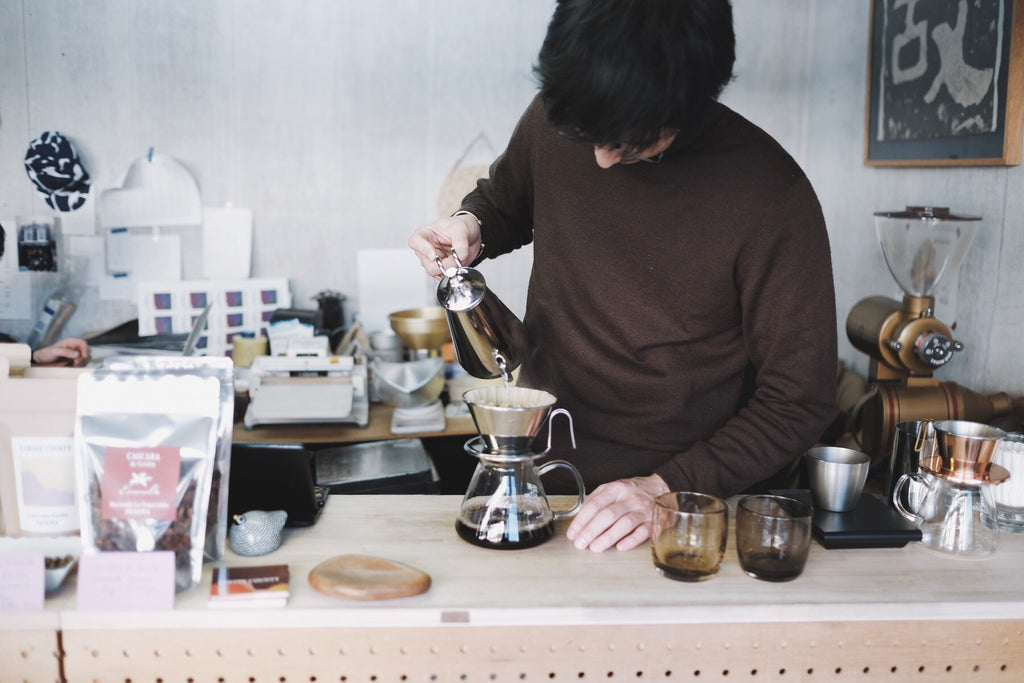
-Please tell us about your roast.
I haven’t changed my roasting style really. People who know me well say my coffee captures my spirit. When I try it myself, it does remind me of my favourite flavour notes from wine and food. What you eat and what you drink really affects your taste, and that is the case with roasting too. I always roast the same beans multiple times, and adjust little by little to realise the ideal flavour. The coffee I produce reflects myself very well, even including how I grew up and what I have experienced in my life. I cherish that very much, and I also value the farmer’s work ethics and their personality, and that affects my business decisions too.
-Are you still in touch with the farms?
I usually visit Central America several times a year, and I often visit 2-3 countries at a time such as Nicaragua, El Salvador and Honduras. This year, I went to Ethiopia in January and Indonesia last month. It’s true that I can roast good coffee using beans purchased from importers, and there’s no guarantee that my selection can always be superior to the coffee experienced importers selected. However, I do believe that selecting the beans myself and seeing their source with my own eyes is very important. And being responsible with the whole production is one of the elements of good coffee.
-What kind of roasting machine do you use, and why?
I use vintage Probat 1965 I imported directly from Germany for roasting. I have used Petroncini at Townsquare and Fuji Royal before that, but this Probat has been the best partner I have worked with so far. I love it because I can tell how people who manufactured this machine poured their hearts and ideas into it to realise the quality and practicality. There is nothing decorative about it and I absolutely love that.

-Any future plans?
I don’t have much for now. I’m not planning to expand my business, and I like how it is now. I feel that I just need to focus on the existing business relationships with all my heart. I really enjoy supplying my coffee to other cafes, and hearing genuine reactions from people outside of my shop. I like the idea of someone trying my coffee, and telling someone else about it, and in that way my coffee will gradually get acknowledged by more and more people. Not by expanding my business, not by hiring more people or by selling more beans, but by letting my coffee gets noticed by people only because it’s good, is something fits my style and what I want to achieve. So I will just work hard and go with the flow--no one really knows what they will be thinking in a year’s time anyway!
Recently I have been enjoying making glass mugs for coffee by hand--I really love handmade stuff. Our package labels are also designed and painted by hand, where I categorised flavours and associated them with colours and ordered special designs for them. It took a long time until I got it perfect, but I love how they express the flavours with the warmth of a human hand and heart.

What you make conveys who you are. Mori-san does not shy away or hide it, he freely expresses what he believes is good. Mori-san’s attitude and his free spirit create exciting coffee, and it gives us a boost to stay true to ourselves and do our best.
COFFEE COUNTY Official Website
http://coffeecounty.cc/
Facebook
https://www.facebook.com/coffeecounty1980/





